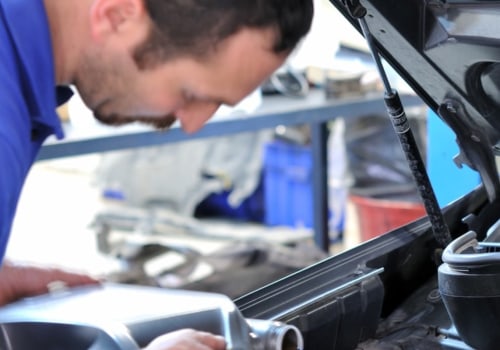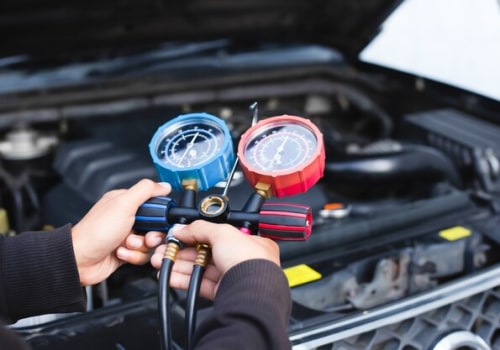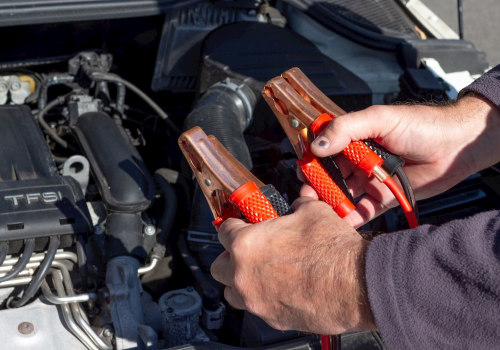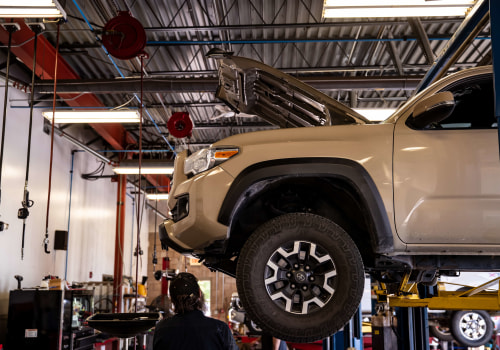Vehicles are machines and, like any machine, need maintenance. For most vehicles, regular maintenance starts at 5,000 miles and continues from there every 5,000 to 10,000 miles. Of course, checking your car more regularly is even better. Now that you know vehicle maintenance 101, you're on your way to ensuring your car continues to safely navigate the road for miles. Oil and oil filter engine oil and oil filter should be changed regularly, because as the engine runs, small pieces of metal, dirt and carbon end up in the oil and can cause excessive wear on the engine.
Non-synthetic oil that was traditionally used in the past always had a general rule of 3,000 miles, but most cars today run on synthetic material, which can safely last between 5,000 and 10,000 miles between oil changes, depending on the type. Remember to also check the engine oil level regularly - once every two weeks and before any long road trip should be enough. A clogged air filter makes it difficult for the engine to breathe and that can negatively affect performance. Changing your air filter every 15,000 to 30,000 miles is a good rule of thumb; if you park or drive in a dusty environment, change the air filter closer to 15,000 miles. Nobody likes to stick their hand in their pocket to pay the mechanic. That's why it's important to take preventive measures with regular DIY maintenance, especially if you drive a vehicle that is considered “old” by current standards.
If you want to save money while taking special care of your daily driver, our car maintenance checklist will help ensure that all your bases are covered when it comes time to open the hood and kick your tires. Tyre pressure, engine oil, and brake oil checks are examples of daily maintenance checks. Changing engine oil, filter and brake pads is performed as often as recommended by the car manufacturer. Let's look at 10 maintenance services you should have performed at least every year. Proper car maintenance has many rewarding advantages that don't have to do with getting from point A to point B. Between work, family events, and dozens of other obligations people have, basic car maintenance can get in the way.
Not only that, but maintaining a detailed vehicle maintenance history can also help improve the resale value of your car. Consult your vehicle's owner's manual and find out when recommended car maintenance services should be scheduled. When you perform car maintenance at regular intervals, it keeps your trip in good working order and helps avoid costly mechanical repairs in the future. Cars that use a timing belt instead of a timing chain need to worry about this little maintenance. Taking care of your car by performing preventive maintenance helps ensure you have safe and reliable transportation. Remember that basic car maintenance can save you a lot of money and maintain the value of your car in the long term. Preventive maintenance not only keeps cars in top shape for optimal performance, but it also saves you a lot of money by avoiding total damage. But do you need to pay a mechanic to service the vehicle? You can take care of a large part of the basic maintenance of the vehicle by following some tips.
Basic car maintenance typically involves overhauling or replacing parts such as spark plugs, cables, fluids, and serpentine belts. Headlights, turn signals, brake and parking lights are all important components that need regular inspection. Make sure they are all working properly so you can stay safe on the road. To sum up: Regularly scheduled preventive maintenance is essential for keeping your car running smoothly for years to come. It's important to stay on top of these services so you don't end up with costly repairs down the line.
Make sure to consult your owner's manual for specific recommendations for your make and model.






